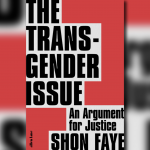
It’s women in translation month and I’m still on my book buying ban so I’ve delved into my shelves to find some women in translation to read, starting with…
Family Lexicon
by Natalia Ginzburg (translated from Italian by Jenny Mcphee)
Family Lexicon is an autobiographical novel by Natalia Ginzburg. Natalia wrote the book in 1960s when she was living in London, for her; England was a place characterised by its melancholy.
England is a country where people stay exactly as they are. The soul does not receive the slightest jolt. It stays always still, unchanging, protected by a gentle, temperate, humid climate without seasonal extremes, in the same way that the green of the fields (which it is impossible to imagine being greener) stays the same throughout the seasons, never eaten away by intense cold or devoured by the sun. The soul does not free itself from its vices but neither does it attach itself to new vices. Like the grass, the soul silently lulls itself in its green solitude, watered by the tepid rain.
England: Eulogy and lament by natalia ginzburg, 1961 (translated by dick davis for the little virtues)
England always made Natalia think about death and with death on her mind she would look back at her life in its entirety, thinking about her family and her childhood. What I loved most about this book was all the silly sayings that make up a family, the sayings and stories you hear repeated so many times whilst growing up that they become a part of who you are. Natalia writes vividly about her cantankerous father Beppino who disapproves of nearly everything from Modern Art which he refers to as, ‘dribbledrabs’ and ‘doodledums’, to his children and wife who are often described as ‘jackasses’ and accused of partaking in ‘nitwiterries.’ Then there is Lidia, Natalia’s mother, an eternal optimist who loves nothing more than repeating the same family stories to whoever will listen. Together they have five children, Gino is the eldest and Beppino’s favourite because he is studious and good at hiking, next is Mario who’s moods swing violently and reminds Lidia of her elder brother Silvio who commited suicide, then Paola who loves beautiful gowns and melancholic novels, Alberto who is cheerful and never “moonish” and finally Natalia who is mostly on the fringes of the story, probably because as she writes in her introduction to the book, “I had little desire to talk about myself.” Thus, we know that Alberto and Mario never really got along but Mario and Paola were very close for a time, as were Lidia and Paola whereas Beppino and Mario were constantly at odds but then Beppino was at odds with everyone, apart from Gino but we don’t really know about the relationship that Natalia had with any of these people or were she fit in to the family. She said in an interview in 1964 that Family Lexicon is a story about the people in her life but not the s of her life.
My parents had five children. We now live in different cities, some of us in foreign countries, and we don’t write to each other often. When we do meet up with one another we can indifferent or distracted. But for us it takes just one word. It takes one word, one sentence, one of the old ones from our childhood, heard and repeated countless times…. If my siblings and I were to find ourselves in a dark cave or among millions of people, just one of those phrases or words would immediately allow us to recognise each other.
family lexicon by natalie ginzburg
I often get the feeling when reading books translated from Italian that I’m missing something, that some magic is being lost in the translation and Natalia once remarked herself that she felt the book was probably not well translated into English. Having now read quite few books translated from Italian including My Brilliant Friend by Elena Ferrante and A Girl Returned by Donatella Di Pietrantonio despite both these books being wonderfully translated by Anna Goldsten, one still can’t help but feel that some of the nuances of the dialect are lost. Jenny Mcphee, is the third person to translate Family Lexicon, a book that contains a lot of Italian dialect and made-up words, she said in an interview with the publication Reading in Translation that she does not attempt to imitate dialect when translating because it’s very rarely successful and replacing an Italian dialect with an English or American one e.g. if a character is speaking in a Naplese dialect just find the English “equivalent” like using a Liverpudlian (scouse) dialect wouldn’t work. Therefore the only solution is to continue muddling along with my Italian lessons and hopefully one day be able to read Ginzburg in her native tongue.
Translation is about translating much more than just language. When you translate you are bringing across language, yes, but also culture, place, politics and so to use a dialect or accent that puts the reader in an entirely different context seems misguided to me.
Jenny Mcphee in an interview with reading in translation









Leave a Reply